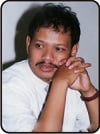Globalization and its Implications for the Field of Education in Indonesia: Between Challenge and Response
Abstract
ABSTRACT: The process of globalization is now entering almost all aspects of human life. The process of globalization is due to the acceleration of innovation and its application in science and technology. All phenomena of globalization have had the implications in the field of education, including the education system in Indonesia. In the context of the teaching-learning process, for example, it seems to have been and will being changing, in pertaining with the development of science and information technology, that is emergencing of an e-learning phenomenon (learning through electronic media) and the application of multi-media technology in the learning process. Therefore, education in Indonesia must be ready to welcome the phenomena of globalization with all its challenges and responses. Indeed, the education sector in Indonesia is still a "cinderella" (step child) in the process of nation building. Institute for R & D (Research and Development) is also still being accessories and not yet functioning optimally. It is appropriate if the Indonesia government and society to change the paradigm and to reorient about the critical role of education as a vehicle, not only to educate and advance the nation-state but also to improve the quality of the HR (Human Resources) that are creative and innovative, have a work ethic and high morale, and able to stand up right in order parallel to the other nation-states in the world.
KEY WORD: Globalization, science and technology, education, economic development, human resources, creative and innovative, and work ethic.
RESUME: “Globalisasi dan Implikasinya bagi Dunia Pendidikan di Indonesia: Antara Tantangan dan Jawaban”. Proses globalisasi saat ini sudah memasuki hampir seluruh aspek kehidupan manusia. Proses globalisasi ini terjadi akibat akselerasi inovasi dan penerapannya di bidang sains dan teknologi. Semua fenomena globalisasi itu berimplikasi dalam bidang pendidikan, termasuk sistem pendidikan di Indonesia. Dalam konteks proses belajar-mengajar, misalnya, nampaknya telah dan akan mengalami perubahan, sekaitan dengan perkembangan sains dan teknologi informasi, yaitu munculnya fenomema e-learning (belajar melalui media elektronik) dan aplikasi teknologi multi media dalam proses belajar. Karenanya, dunia pendidikan di Indonesia harus siap menyambut fenomena globalisasi ini dengan segala tantangan dan jawabannya. Memang, sektor pendidikan di Indonesia masih menjadi “cinderella” (anak tiri) dalam proses pembangunan bangsa. Lembaga LITBANG (Penelitian dan Pengembangan) pula masih bersifat asesoris dan belum berfungsi secara optimal. Sudah selayaknya jika pemerintah dan masyarakat Indonesia mengubah paradigma dan melakukan reorientasi tentang sentralnya peran pendidikan sebagai wahana, selain untuk mencerdaskan dan memajukan bangsa juga untuk meningkatkan kualitas SDM (Sumber Daya Manusia) yang kreatif dan inovatif, punya etos kerja dan semangat juang yang tinggi, serta mampu tegak berdiri, sejajar dengan bangsa-bangsa lain di dunia.
KATA KUNCI: Globalisasi, sains dan teknologi, pendidikan, pembangunan ekonomi, sumber daya manusia, kreatif dan inovatif, serta etos kerja.


About the Authors: Dr. M. Subandowo is a Senior Lecturer at the Postgraduate Program UNIPA (University of PGRI Adibuana) in Surabaya, East Java; and Andi Suwirta, M.Hum. is a Senior Lecturer at the Department of History Education, Faculty of Social Studies Education UPI (Indonesia University of Education) in Bandung, West Java, Indonesia. Corresponding author is: atriwusidna@gmail.com
How to cite this article? Subandowo, M. & Andi Suwirta. (2014). “Globalization and its Implications for the Field of Education in Indonesia: Between Challenge and Response” in SOSIOHUMANIKA: Jurnal Pendidikan Sains Sosial dan Kemanusiaan, Vol.7(2) November, pp.293-300. Bandung, Indonesia: Minda Masagi Press, UNHAS Makassar, and UNIPA Surabaya, ISSN 1979-0112.Chronicle of the article: Accepted (October 9, 2014); Revised (November 10, 2014); and Published (November 20, 2014).
Full Text:
PDFReferences
Ashkenas, R. et al. (2002). The Boundaryless Organization. San Francisco: Jossey-Bass.
Bell, Daniel. (1976). The Coming of Post-Industrial Society: A Venture in Social Forecasting. New York: Basic Books Inc Publishers.
Bellah, Robert N. (1984). Tokugawa Religion: The Values of Pre-Industrial Japan. Boston: The Macmillan Publishing Company.
Berger, Peter L. et al. (1992). Pikiran Kembara: Modernisasi dan Kesadaran Manusia Yogyakarta: Penerbit Kanisius, Translation from The Homeless Mind: Modernization and Consiousness.
Djojonegoro, Wardiman. (1996). Lima Puluh Tahun Perkembangan Pendidikan Indonesia. Jakarta: Depdikbud RI [Departemen Pendidikan dan Kebudayaan Republik Indonesia].
Dong, F.H. (2001). “Can You Succeed as a Cyberstudent? How to Develop Communication Skills on the Web?” Available [online] also at http://www.elearningmag.com [accessed in Bandung, Indonesia: October 17, 2014].
Fukuyama, Francis. (2001). Kemenangan Kapitalisme dan Demokrasi Liberal. Yogyakarta: Penerbit Qalam, Translation from The End of History and the Last Man.
Hyman, Irwin S. & Pamela A. Snook. (1999). Dangerous Schools: What We Can Do about the Physycal and Emotional Abuse of Our Children. San Francisco: Jossey-Bass Publishers.
Ismaun. (2001). “Paradigma Pendidikan Sejarah yang Terarah dan Bermakna” in Historia: Jurnal Pendidikan Sejarah, No.4, Vol.II [December]. Bandung: Jurusan Pendidikan Sejarah FPIPS UPI [Fakultas Pendidikan Ilmu Pengetahuan Sosial, Universitas Pendidikan Indonesia].
Jalal, Fasli & Dedi Supriadi [eds]. (2001). Reformasi Pendidikan dalam Konteks Otonomi Daerah. Yogyakarta: Depdiknas [Departemen Pendidikan Nasional] — Bappenas [Badan Perancang Pembangunan Nasional] — Adicita.
Kennedy, Paul. (1993). Preparing for the Twenty-First Century. London: Harper Collins Publishers.
Lombard, Denys. (1996). Nusa Jawa, Silang Budaya: Batas-batas Pembaratan, Jilid 1. Jakarta: Penebit Gramedia, Translation from Le Carrefour Javanis: Essai d’Historie Globale 1. Le Limited de l’Occidentalisation.
Munir. (2001). “Aplikasi Teknologi Multimedia dalam Proses Belajar-Mengajar” in Mimbar Pendidikan: Jurnal Pendidikan, No.3, Th.XX. Bandung: UPI [Universitas Pendidikan Indonesia] Press.
Naisbitt, John. (1994). Global Paradox. New York: Avon Books.
Naisbitt, John & Patricia Aburdene. (1990). Megatrends 2000: Sepuluh Arah Baru untuk Tahun 1990-an. Jakarta: Penerbit Binarupa Aksara, Translation from Megatrends: Ten New Directions Transforming Our Lives.
Psacharopoulos, George & Maureen Woodhall. (1991). Education for Development: An Analysis of Investment Choices. New York: Oxford University Press.
Sapriya. (2002). Studi Sosial: Konsep dan Model Pembelajaran. Bandung: Penerbit Buana Nusantara.
Sumaatmadja, Nursid. (1999). Perspektif Global. Jakarta: Penerbit UT [Universitas Terbuka].
Supriadi, Dedi [ed]. (2002). Sejarah Pendidikan Teknik dan Kejuruan di Indonesia: Membangun Manusia Produktif. Jakarta: Ditdikmenjur Ditjendikdasmen Depdiknas RI [Direktorat Pendidikan Menengah Kejuruan, Direktorat Jenderal Pendidikan Dasar dan Menengah, Departemen Pendidikan Nasional Republik Indonesia].
Suriasumantri, Jujun S. (1985). Filsafat Ilmu: Sebuah Pengantar Populer. Jakarta: Pustaka Sinar Harapan.
Toffler, Alvin. (1986). The Third Wave. New York: W. Morrow Inc.
UNESCO [United Nations on Education, Social, and Cultural Organization]. (1999). Belajar, Harta Karun di Dalamnya: Laporan kepada UNESCO dari Komisi Internasional tentang Pendidikan untuk Abad XXI. Jakarta: Komisi Nasional Indonesia untuk UNESCO, Translation from Learning, the Treasure Within: Report to UNESCO of the International Comission on Education for the Tewenty-Fisrt Century.
Weaver, Paul H. (1994). News and the Culture of Lying. New York, Oxford, Singapore, and Sydney: The Free Press.
Weber, Max. (1985). The Protestan Ethic and the Spirit of Capitalism. London, Boston, and Sydney: Unwin Paperbacks.
Willis, Sofyan S. (2003). “Peran Guru sebagai Pembimbing” in Mimbar Pendidikan: Jurnal Pendidikan, No.1, Th.XXII. Bandung: UPI [Universitas Pendidikan Indonesia] Press.
SOSIOHUMANIKA: Jurnal Pendidikan Sains Sosial dan Kemanusiaan is published by Minda Masagi Press. This work is licensed under a Creative Commons Attribution-Sharealike 4.0.
